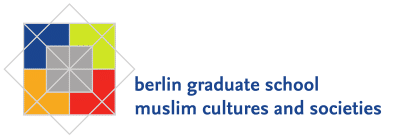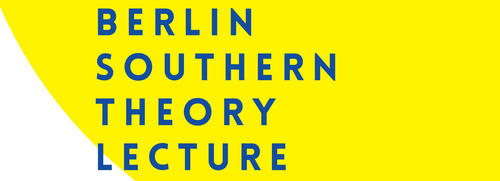Summer school in medical anthropology at FU Berlin - July 22nd-26th, 2013
News vom 26.06.2012
International Summer School in Medical Anthropology
Well-being at the Margins:
Seeking Health in Stratified Landscapes of Medicine and Healing
Institute of Social and Cultural Anthropology, Freie Universität Berlin
July 22nd – July 26th 2013
Download International Summer School program (pdf)
Confirmed Speakers:
-
Heide Castañeda (University of South Florida, USA)
-
Sylvie Fainzang (Cermes3/Inserm, Paris, France)
-
Ian Harper (University of Edinburgh, UK)
-
Lenore Manderson (Monash University, Australia)
-
David Napier (University College London, UK)
-
Vinh-Kim Nguyen (Université de Montréal, Canada)
-
Peter Redfield (University of North Carolina at Chapel Hill, USA)
-
Miriam Ticktin (New School for Social Research, New York, USA)
Organizing Team:
-
Hansjörg Dilger (Freie Universität Berlin, Germany)
-
Anita Hardon (University of Amsterdam, Netherlands)
-
Claire Beaudevin (Cermes3/Ifris, Paris, France)
-
Susann Huschke (Freie Universität Berlin, Germany)
-
Katerina Ferkov (University of Nova Gorica, Slovenia)
-
Dominik Mattes (Freie Universität Berlin, Germany)
Call for Papers
Deadline for Abstracts: July 15th, 2012
People across the globe are navigating stratified and pluralistic health care landscapes, shaped by neoliberal policies and unequal access to medical care. The summer school explores the idea that different population groups such as ethnic minorities, the elderly, people with chronic diseases, the unemployed, and unauthorized migrants may face – to some extent – similar struggles: the experiences of living with insecurity and uncertainty, of being excluded or discriminated against in the health care system, and having difficulties accessing the treatments they consider most effective, including biomedical care and other forms of medicine and healing.
We invite participants to address national and local models of health care provision across the globe and to identify common developments and issues. Presentations should pay close attention to the growing stratification of health care systems and the many facets of inequality in different regions and localities (e.g. Hardon et al. 2007), drawing on concepts such as structural violence and structural vulnerability (Quesada et al. 2011), health-related deservingness (Willen 2012), and biopolitics and the moral economy of health care (Fassin 2005). Papers may comment on medical schools and hospitals as sites of knowledge production, (re)producing hegemonic biomedical concepts of suffering and healing (Foucault 1996 [1963], Good 1994).
At the same time, we ask how people as active subjects engage in struggles for well-being and how experiences of exclusion and vulnerability shape people’s ways of navigating and acting upon diversified health systems. Presentations should analyze what constitutes social suffering (e.g. Das and Kleinman 2001) in specific local moral worlds (Kleinman 2007), and how exclusion, subordination and insecurity are embodied while paying close attention to patients’ subjectivities (e.g. Biehl et al. 2007) and social relations (Whyte 1997; Dilger and Luig 2010). In regard to the growing relevance of resource constraints, we encourage participants to consider that marginalized people are not mere victims suffering from manifold adversities and inequalities, but may also actively engage in practices of exclusion themselves in their attempts to secure medical treatment and other health-related privileges.
By bringing together expertise from various regional settings and thematic areas of medical anthropology, we aim to challenge and redefine the concept of health-seeking behavior in relation to ongoing shifts in local and national healthcare systems. Moving beyond the question often asked in regard to health seeking – when and why people choose one or another type of treatment and healing in pluralistic health landscapes – we focus on how people seek and achieve well-being in highly stratified health landscapes shaped by inequality. How do people experience and counteract insecurity in the context of illness, how do they prevent illness, and how do they manage to get well again despite being pushed to the margins of local and national healthcare landscapes? We also invite papers to comment on how people’s struggles for well-being become intertwined with new dynamics of institutionalization of healthcare services in market-driven, highly politicized healthcare settings. How do shifting priorities in healthcare trigger dynamics of competition and exclusion not only among marginalized groups, but also between healthcare providers themselves? How do these processes create new opportunities for medical intervention that may be driven by human rights and charity discourses, as well as by decidedly moralistic and/or religious agendas? Papers should address these questions by paying attention to knowledge and knowledge acquisition, social and cultural capital, emerging forms of (religious as well as secular) humanitarianism (e.g. Ticktin 2011), and citizenship and belonging (e.g. Petryna 2002; Nguyen 2010).
Furthermore, we invite papers discussing ethical questions arising from research on suffering and inequality (e.g. Scheper-Hughes 2004). Which specific methodological challenges and limitations arise from studying well-being at the margins? How do we deal with difficult fieldwork experiences and feelings of frustration, despair and anger in the face of suffering? How do we reciprocate with research participants along steep lines of power inequalities, and how can we engage in political struggles in the field of health and well-being in local, national, and global contexts (e.g. Fainzang et al. 2009)?
Eligibility of Applicants and Structure of the Summer School
We primarily invite advanced PhD students and junior scholars to submit abstracts for presentations. However, excellent proposals from beginning PhD students will also be considered. Abstracts (max. 300 words) must be submitted before July 15th, 2012. Applications should further include the applicant’s CV (max. 1 page). Given the success of the funding application, travel and accommodation for up to 20 presenting participants will be covered. Decisions regarding presentations and participation will be made by July 20th, 2012.
The summer school will include lectures and workshops on four themes: 1) Structures of inequality, 2) Citizenship and belonging, 3) Embodiment of exclusion and insecurity, and 4) Ethics of researching suffering and inequality. The selected papers will be read beforehand by the invited lecturers and participants, and discussed in one of the thematic panels. Oral presentations of the individual papers, to be held by fellow participants, will be 10 minutes max.
In addition, there will be a round-table with invited guests from other disciplines and/or non-academic institutions, and a one-day field trip to explore Berlin’s healthcare landscape in order to allow participants to translate some of the concepts discussed in the lectures and workshops into ethnographic inquiry. Among the potential sites for the field trip are a clinic for Berlin’s homeless, a center for STD prevention and prenatal care mainly catering to migrant women, and an emergency ward in one of Berlin’s most diverse neighborhoods.
One of the goals of the summer school is to promote the publications of the papers presented in the thematic panels by providing constructive feedback on the content of the papers as well as offering concrete publication opportunities. A workshop on publishing strategies with an editor of a renowned journal is planned for the last day of the summer school. Among other possibilities, we are planning on producing an edited volume, combining selected presentations from the summer school. International publishers have already expressed interest in publishing such a volume, based on the works of junior scholars of medical anthropology in Europe and beyond.
Applications should be sent in pdf format (including both abstract and CV) no later than July 15th, 2012 to the following email address: fu.berlin.medanthro@gmail.com
References
Biehl, João; Byron Good and Arthur Kleinman (Eds.) (2007): Subjectivity. Ethnographic Investigations. Berkeley: University of California Press.
Das, Veena and Arthur Kleinman(Eds.) (2001): Remaking a World. Violence, Social Suffering, and Recovery. Berkeley: University of California Press.
Dilger, Hansjörg and Ute Luig (Eds.) (2010): Morality, Hope and Grief: Anthropologies of AIDS in Africa. Oxford: Berghahn Books.
Fainzang, Sylvie; Piro Schirripa; Josep M. Comelles; and Els Van Dongen (eds.) (2009): Health, State and Politics (Medical Anthropology, Welfare State and Political Engagement I). Roma/Perugia: Antropologia Medica, Vol. 17-18, Angelo Celli.
Fassin, Didier (2005): Compassion and Repression. The Moral Economy of Immigration Policies in France. In: Cultural Anthropology 20 (3): 362–387.
Foucault, Michel (1996) [1963]: The Birth of the Clinic: An Archaeology of Medical Perception. London: Vintage.
Good, Byron J. (1994): How Medicine Constructs its Objects. In: Byron J. Good: Medicine, Rationality and Experience – An Anthropological Perspective. Cambridge: Cambridge University Press,pp. 65-87.
Hardon, Anita et al. (2007): Hunger, Waiting Time and Transport Costs: Time to Confront Challenges to ART Adherence in Africa. In: AIDS Care 19(5): 658-665.
Kleinman, Arthur (2007): What Really Matters: Living a Moral Life amidst Uncertainty and Danger. New York: Oxford University Press.
Nguyen, Vinh-Kim (2010): The Republic of Therapy: Triage and Sovereignty in West Africa’s Time of AIDS. Durham: Duke University Press.
Petryna, Adriana (2002): Life Exposed. Biological Citizens after Chernobyl. Princeton & Oxford: Princeton University Press.
Quesada, James; Laurie Kain Hart and Philippe Bourgois (2011): Structural Vulnerability and Health. Latino Migrant Laborers in the United States. In: Medical Anthropology 30 (4): 339–362.
Scheper-Hughes, Nancy (2004): Parts Unknown. Undercover Ethnography of the Organs-trafficking Underworld. In: Ethnography 5(1): 29-73.
Ticktin, Miriam (2011): Casualties of Care. Immigration and the Politics of Humanitarianism in France. Berkeley: University of California Press.
Whyte, Susan Reynolds (1997): Questioning Misfortune. The Pragmatics of Uncertainty in Western Uganda. Cambridge: Cambridge University Press.
Willen, Sarah S. (2012): Migration, “Illegality,” and Health. Mapping Embodied Vulnerability and Debating Health-related Deservingness. In: Social Science and Medicine 74: 805-811.


